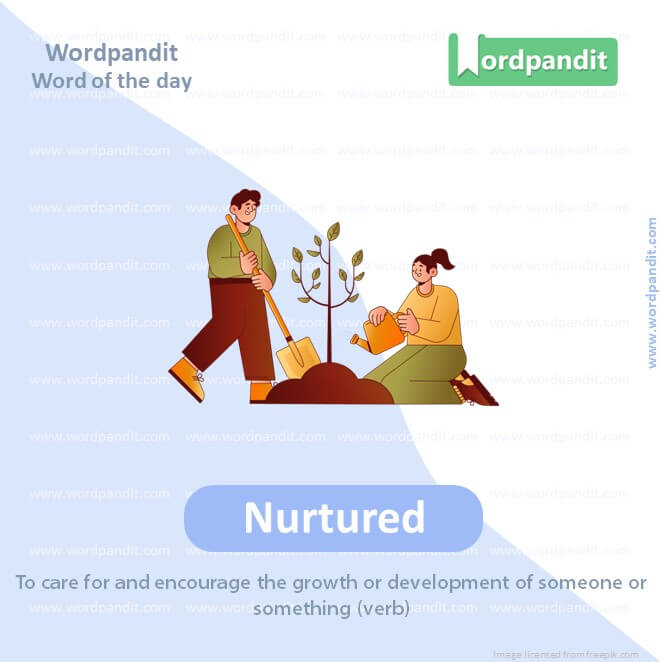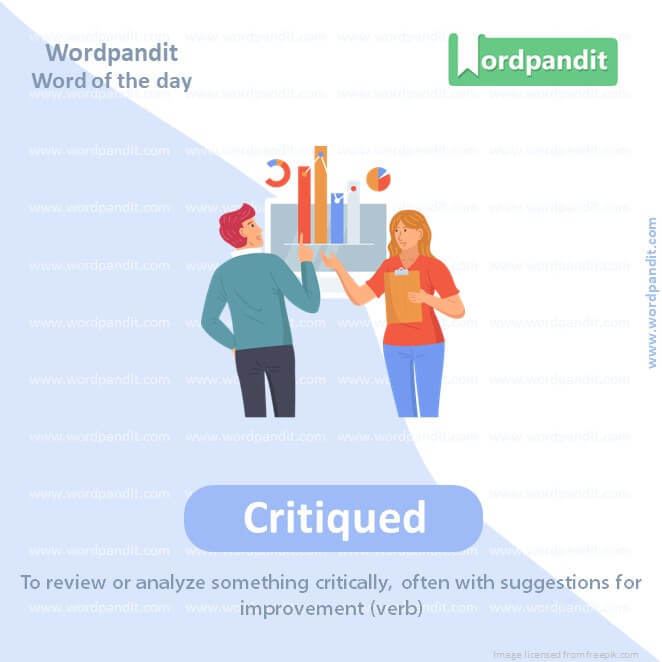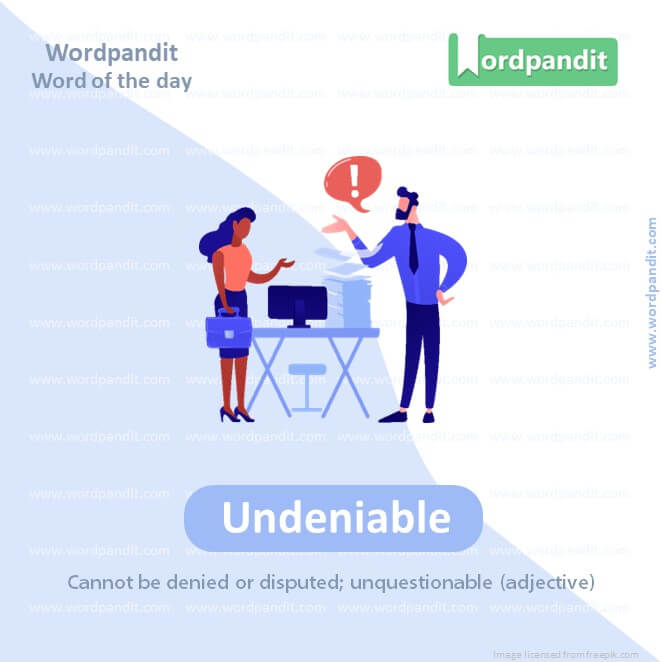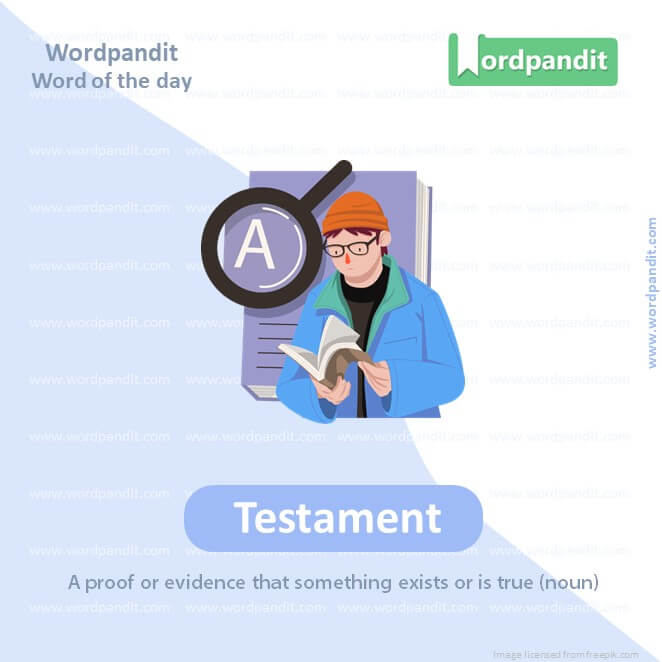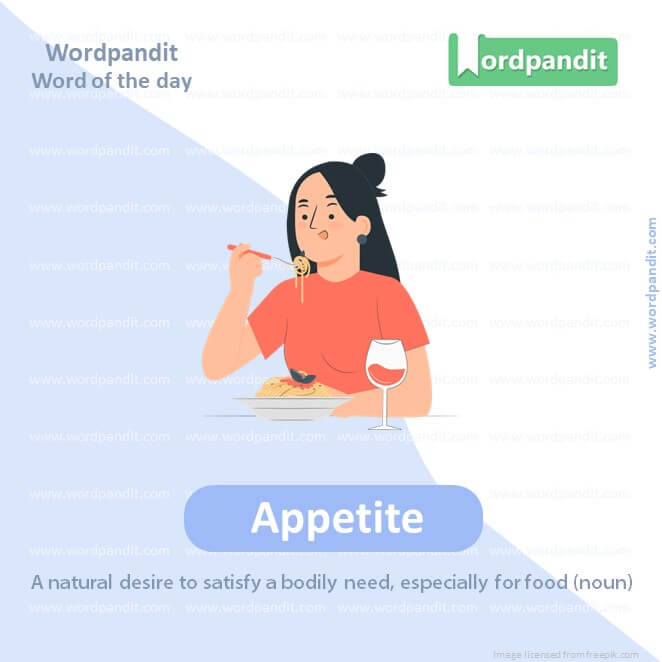Daily Vocabulary from Indian Newspapers and Publications
Welcome to Wordpandit’s Indian Vocabulary Hub
At Wordpandit, we understand the importance of staying rooted in the local context while expanding your language skills. This section focuses on enriching your vocabulary with words and phrases drawn from India’s leading newspapers and publications, ensuring you're learning vocabulary that is practical, relevant, and uniquely Indian.
Why Indian Sources Matter
We believe that the best way to master any language is by immersing yourself in local content. That’s why we carefully curate vocabulary from top Indian publications, including:
- The Hindu
- The Times of India
- The Economic Times
- Hindustan Times
- Live Mint
- The Indian Express
- And many others...
Stay Updated, Stay Relevant
With daily updates from Indian news sources, you’ll be consistently learning words that reflect the trends and shifts in Indian society and culture. Our focus is to provide vocabulary that enhances your understanding of the language in an Indian context.
How Wordpandit Supports Your Goals
Whether you’re preparing for exams, aiming to improve your professional communication, or simply want to stay connected with the latest Indian vocabulary, Wordpandit is here to guide you every step of the way.
Learn with a Practical Approach
Our interactive learning methodology includes real-world examples, engaging activities, and context-specific usage to ensure that every word becomes part of your active vocabulary.
Dive into Indian Vocabulary Today!
Why Choose Wordpandit?
Practical Learning: Focus on words you'll actually encounter in real-world reading, enhancing your comprehension and communication skills.
Diverse Content: From current affairs to scientific breakthroughs, our varied sources expose you to vocabulary across multiple domains.
Effortless Integration: Make Wordpandit a part of your daily routine. Just a few minutes each day can significantly boost your lexicon over time.
Your Path to Vocabulary Mastery
- Visit our Daily Vocabulary section regularly
- Explore new words and their usage in context
- Practice incorporating these words into your own writing and speech
- Track your progress as your vocabulary expands
Start Your Journey Today
Embark on your vocabulary enhancement journey with Wordpandit. By consistently engaging with our daily posts, you'll build a robust vocabulary that serves you well in academic, professional, and personal contexts.
Remember, a word a day keeps linguistic limitations at bay. Make Wordpandit your daily companion in the quest for vocabulary excellence!
WORD-1: Nurtured
Context:
"Free market fundamentalism has nurtured the growth and global eminence of the social media industry." - Indian Express
Explanatory Paragraph:
The word "nurtured" means to support, encourage, or care for something so that it can grow, develop, or thrive. In the given context, it means that free market ideologies have provided the right environment and support that allowed the social media industry to grow and become powerful on a global scale. Just like a gardener nurtures plants to bloom, economic policies have nurtured industries to flourish.
Meaning: To care for and encourage the growth or development of something (Verb)
Pronunciation: NUR-cherd
Difficulty Level: ⭐⭐ Easy
Etymology: From Middle English "norturen", derived from Old French "nourrir" meaning 'to nourish', ultimately from Latin "nutrire".
Prashant Sir's Notes:
"Nurtured" suggests more than just passive support—it implies active involvement, continuous care, and the intention to see something grow or succeed. This word often appears in contexts like parenting, mentoring, business growth, and education.
Synonyms & Antonyms:
Synonyms: foster, nourish, cultivate, support, promote
Antonyms: neglect, hinder, ignore, suppress
Usage Examples:
- She nurtured his talent for music from a young age.
- The teacher nurtured curiosity in her students through engaging lessons.
- Small businesses need to be nurtured through supportive policies and infrastructure.
- His grandmother nurtured him with love and wisdom.
Cultural Reference:
"Children are like wet cement. Whatever falls on them makes an impression." - Haim Ginott, emphasizing how children need to be nurtured with care and intention.
Think About It:
What’s something in your life that grew better because you or someone else nurtured it with consistent care?
Quick Activity:
List three abstract things (e.g., trust, creativity, discipline) that can be nurtured. Then write one sentence for each showing how it can be nurtured in real life.
Memory Tip:
Think of "nurtured" like "nourished" — both start with "nur", and both involve giving care and support to help something grow.
Real-World Application:
"Nurtured" is commonly used in professional development, parenting, education, and policy discussions—any area where growth, progress, or development is intentionally supported.
WORD-2: Critiqued
Context:
"She also critiqued the policy of airlines to, on the one hand, mandate that persons with disabilities must sit in the first row of the plane, and, on the other, to prevent them from sitting in the exit row." - Hindustan Times
Explanatory Paragraph:
"Critiqued" refers to the act of evaluating or analyzing something, often in a detailed and thoughtful way, highlighting both strengths and weaknesses. It does not always mean harsh criticism; rather, it involves a reasoned assessment. In this context, the speaker is examining the airline's contradictory policies regarding seating arrangements for persons with disabilities, pointing out possible inconsistencies or unfair treatment.
Meaning: To evaluate or analyze critically, often pointing out flaws and merits (Verb)
Pronunciation: krih-TEEKD
Difficulty Level: ⭐⭐⭐ Intermediate
Etymology: From French "critiquer", from Greek "kritikē" meaning 'the art of judgment'.
Prashant Sir's Notes:
"Critiqued" is more academic or formal than "criticized". It’s commonly used in discussions of art, policy, literature, or decisions. A good critique is balanced—it doesn't just point out what's wrong but also suggests what’s working or how something can be improved.
Synonyms & Antonyms:
Synonyms: evaluated, analyzed, assessed, examined, reviewed
Antonyms: praised blindly, ignored, accepted uncritically
Usage Examples:
- The professor critiqued my essay, offering insights that helped me revise it better.
- She critiqued the new education policy for being out of touch with ground realities.
- His film was widely critiqued for lacking originality, but praised for its cinematography.
- During the debate, each candidate critiqued the other's stance on environmental laws.
Cultural Reference:
"In art, the value of a critique is not in tearing down, but in guiding the artist to build better." - A principle often upheld in creative writing and design communities.
Think About It:
How do we distinguish between helpful critique and destructive criticism in public discussions or social media?
Quick Activity:
Pick a recent decision or policy (school, workplace, government). Write 2 sentences critiquing it: one pointing out a flaw and one suggesting a possible improvement.
Memory Tip:
Think of "critique" as a cousin of "review" — both involve looking at something with care and judgment. The ending "-ed" in "critiqued" tells you the action has already been done.
Real-World Application:
The word "critiqued" is often used in academic essays, media reviews, policy discussions, and professional evaluations where a balanced analysis is required.
WORD-3: Undeniable
Context:
"The world struggles to contain the toxic legacies of 2023 — cruel regional wars, civic conflicts and undeniable stories of anthropogenic harms — technocrats, ecocrats, and bureaucrats across the world continue to devise and launch quiet initiatives portending a better and larger future for human rights." - Indian Express
Explanatory Paragraph:
"Undeniable" refers to something so clearly true or certain that it cannot be disputed or rejected. In the context above, it emphasizes the harsh and evident truth about the environmental damage caused by human actions ("anthropogenic harms"). These facts are so compelling and well-documented that no one can reasonably argue against them.
Meaning: Clearly true and impossible to deny or dispute (Adjective)
Pronunciation: un-duh-NY-uh-buhl
Difficulty Level: ⭐⭐ Easy
Etymology: From the prefix “un-” (not) + “deniable” (from Latin "denegare" meaning to deny), meaning something that cannot be denied.
Prashant Sir's Notes:
"Undeniable" is a powerful word to emphasize facts, truths, or outcomes that are so strong and evident that argument against them would be unreasonable. It’s often used in discussions involving proof, impact, or recognition.
Synonyms & Antonyms:
Synonyms: indisputable, unquestionable, irrefutable, evident, certain
Antonyms: questionable, disputable, uncertain, debatable
Usage Examples:
- The evidence of climate change is undeniable and growing more visible every year.
- Her talent for storytelling is undeniable—every reader gets hooked immediately.
- The team's progress over the past year is undeniable, thanks to their discipline and unity.
- It’s an undeniable fact that technology has reshaped modern education.
Cultural Reference:
"Truth is incontrovertible. Malice may attack it, ignorance may deride it, but in the end, there it is." — Winston Churchill. A reflection of the essence of something being undeniable.
Think About It:
What are some undeniable truths in today’s world that we still tend to ignore or delay acting upon?
Quick Activity:
Write down 3 undeniable personal qualities or achievements that make you proud. Then use the word “undeniable” in a sentence for each.
Memory Tip:
Break it down: “UN” (not) + “DENIABLE” (able to be denied) = NOT ABLE TO BE DENIED. Think of something like the sun rising—it’s undeniable!
Real-World Application:
"Undeniable" is commonly used in journalism, debates, science communication, and public speaking when emphasizing strong truths or proven facts that should be acknowledged or acted upon.
WORD-4: Testament
Context:
"It was a testament to the transformative power of technology to break down the barriers that the disabled face in the physical world." - Hindustan Times
Explanatory Paragraph:
The word "testament" in this context refers to strong evidence or proof of something. Here, it suggests that the impact of technology in helping people with disabilities overcome real-world barriers clearly demonstrates—or stands as a testament to—its transformative power. It doesn’t refer to a legal will, but rather to something that shows the truth or strength of an idea or achievement.
Meaning: Strong evidence or proof of something; a demonstration (Noun)
Pronunciation: TES-tuh-muhnt
Difficulty Level: ⭐⭐⭐ Intermediate
Etymology: From Latin "testamentum" meaning 'a will' or 'something witnessed', derived from "testari" meaning 'to bear witness'.
Prashant Sir's Notes:
"Testament" is often used metaphorically to refer to something that strongly proves or demonstrates a quality or truth. It’s frequently found in inspirational, technological, or historical writing to emphasize lasting impact or clear proof.
Synonyms & Antonyms:
Synonyms: proof, evidence, demonstration, indication, witness
Antonyms: contradiction, denial, refutation, disproof
Usage Examples:
- The success of the program is a testament to the team's hard work and innovation.
- His recovery from the accident is a testament to his resilience and willpower.
- The building’s architecture is a testament to ancient engineering skills.
- The emotional speech was a testament to their deep bond of friendship.
Cultural Reference:
"The New Testament" and "The Old Testament" in the Bible are named for their role in bearing witness to spiritual covenants—showing how the word 'testament' has evolved from religious to everyday usage as a symbol of truth and proof.
Think About It:
What achievements or aspects of your life could be seen as a testament to your values or hard work?
Quick Activity:
Write two sentences using "testament" — one referring to a personal experience and one describing a historical or societal example.
Memory Tip:
Think of “testament” as something that “testifies” to the truth or value of something. If it stands the test of time—it’s a testament!
Real-World Application:
"Testament" is commonly used in speeches, articles, and academic writing to highlight meaningful proof or impact—especially when acknowledging success, resilience, or innovation.
WORD-5: Appetite
Context:
"Portions of different asset classes in the proportion that serves your age, goals and risk appetite." - Hindustan Times
Explanatory Paragraph:
While “appetite” literally refers to hunger for food, in this context, it’s used metaphorically to mean a person's willingness or desire to take risks—especially financial risks. "Risk appetite" is a common term in investing and finance that refers to how much risk someone is comfortable with while making investment decisions. A person with a high risk appetite may invest in volatile stocks, while someone with a low appetite prefers safer options.
Meaning: A strong desire or inclination for something (Noun)
Pronunciation: AP-uh-tight
Difficulty Level: ⭐⭐ Easy
Etymology: From Latin "appetitus", meaning 'desire for', from "appetere" – 'to seek after'.
Prashant Sir's Notes:
"Appetite" is not just about food—it’s widely used in business, finance, and even psychology to talk about desire or willingness. For example, you might hear about an "appetite for innovation", "appetite for adventure", or as here, "risk appetite". Understanding its broader usage helps you sound more natural in formal or analytical discussions.
Synonyms & Antonyms:
Synonyms: desire, craving, inclination, urge, yearning
Antonyms: aversion, disinterest, repulsion, indifference
Usage Examples:
- She has a strong appetite for learning and self-improvement.
- Investors with a high risk appetite tend to favor emerging markets and cryptocurrencies.
- The general public’s appetite for eco-friendly products has grown significantly in recent years.
- After the hike, he had a huge appetite and devoured a full meal.
Cultural Reference:
The phrase “an appetite for destruction” became iconic with the 1987 debut album by Guns N' Roses, metaphorically capturing a strong and dangerous urge or desire—showing how “appetite” is often linked with intensity and passion.
Think About It:
What kind of “appetites” shape our decisions in life—beyond food? How do they influence our goals, risks, and priorities?
Quick Activity:
Write down three things you have a strong “appetite” for (e.g., creativity, travel, leadership). Now, use the word “appetite” in a sentence for each.
Memory Tip:
Think of "appetite" as what you’re hungry for—whether it's food, knowledge, excitement, or even risk. If you can crave it, you can use “appetite” for it!
Real-World Application:
“Appetite” is widely used in business, psychology, economics, and personal development to express desire or readiness—for risk, innovation, challenge, or change. Understanding it adds depth to how we describe motivation and decision-making.



